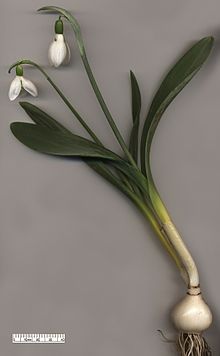Circe
In Greek mythology, Circe or sərsē (Greek Κίρκη, falcon), was a Queen goddess (or sometimes nymph or sorceress) living on the island of Aeaea.
Circe's father was Helios (or Helius), the God of the Sun and the owner of the land where Odysseus' men ate cattle, and her mother was Perse, an Oceanid; she was sister of Aeetes, the king of Colchis and of Pasiphaë and Aga. Circe transformed her enemies, or those who offended her, into animals through the use of magical potions. She was renowned for her knowledge of drugs and herbs.

In Homer's Odyssey, her home Aeaea is described as a water mansion standing in the middle of a clearing in a dense wood. Around the house prowled lions and wolves, the drugged victims of her magic; they were not dangerous, and fawned on all newcomers. Circe worked at a huge loom.[1] She invited Odysseus' crew to a feast, the food laced with one of her magical potions, and she turned them all into pigs with a wand after they gorged themselves on it. Only Eurylochus, suspecting treachery from the outset, escaped to warn Odysseus and the others who had stayed behind at the ships. Odysseus set out to rescue his men, but was intercepted by Hermes. Hermes told him to use the herb moly to protect himself from Circe's potion and, having resisted the potion, to draw his sword and act as if he would attack Circe. From there, Hermes told Odysseus that Circe would ask him to bed, but to be wary, because even there, the goddess would be treacherous. She would take his manhood, so he should have Circe swear by the names of the gods that she would not. For one year Odysseus and Circe were lovers. She later assisted him in his quest to reach his home.

According to Homer, she suggested to Odysseus two alternative routes to return to Ithaca: either toward the "Wandering Rocks" (possibly the pumiceous Lipari Islands; in the 13th-century Chinese travel notes of Chou Ju-kua they are called similarly [citation needed]), where King Aeolus reigned. Or, to pass between the dangerous Scylla and the whirlpool Charybdis, conventionally identified with the Strait of Messina.
Towards the end of Hesiod's Theogony (1011f) we find that Circe bore of Odysseus three sons: Agrius (otherwise unknown), Latinus, and Telegonus who ruled over the Tyrsenoi, that is the Etruscans.
Later poets generally only speak of Telegonus as Odysseus' son by Circe. When grown to manhood, later poets reported, she sent him to find Odysseus, who had long since returned to his home on Ithaca, but on arrival Telegonus accidentally killed his father. He brought the body back to Aeaea and took Odysseus' widow Penelope and son Telemachus with him. Circe made them immortal and married Telemachus, while Telegonus made Penelope his wife.
Dionysius of Halicarnassus (1.72.5) cites Xenagoras the historian as claiming that Odysseus and Circe had three sons: Romus, Anteias, and Ardeias who respectively founded three cities called by their names: Rome, Antium, and Ardea.
That Circe also purified the Argonauts for the death of Apsyrtus may be early tradition.
In later tales Circe turned Picus into a woodpecker for refusing her love, and Scylla into a monstrous creature with six dogs' heads when Glaucus (another object of Circe's affection) declared his undying love for her. She had one daughter: Aega, who was born from the ocean in a shield of ice.
Modern interpretations

Medical historians have speculated that the transformation to pigs was not intended literally but refers to anticholinergic intoxication. [1] Symptoms include amnesia, hallucinations, and delusions. The description of "moly" fits the snowdrop, a flower of the region that produces secondary metabolites that can counteract anticholinergics.
Epyonyms
The phrase "Circean poison" has been used to refer to intoxicating things, such as applause.[2]
Derivatives
In the second book of the epic poem The Faerie Queene, Edmund Spenser based Sir Guyon's antagonist Acrasia on Circe; both are witches who change the form of their victims into lower animals such as swine.
Nathaniel Hawthorne retold the story of Circe in his Tanglewood Tales.
In James Joyce's Ulysses, chapter fifteen is known as the "Circe" episode, where Circe's equivalent is the character of the brothel madam, Bella Cohen.
In Ernest Hemingway's early novel The Sun Also Rises, Robert Cohn refers to the Lady Ashley as Circe, saying she "turns men into swine."
In Toni Morrison's Song of Solomon, Circe is a character who assists the protagonist's homecoming.
In John Myers Myers novel Silverlock, Circe turns the main character into a pig due to his affinity for food and fornication.
Carol Ann Duffy wrote a poem entitled Circe.
Circe is also mentioned in Harry Potter and the Sorcerer's Stone, as a famous witch, and in A Great and Terrible Beauty (Libba Bray) as one of the characters.
In Stephen King's short story The Lawnmower Man, a supernatural lawnmower man uses the exclamation 'By Circe!' and is a follower of Pan.
Circe appeared in the cartoon Ulysses 31 where she attempted to build a tower that would house all the knowledge of the universe, which would make her more powerful than the gods.
In DC Comics, Circe is a constant and deadly foe of Wonder Woman.
In Rick Riordan's novel, The Sea of Monsters Circe lures Percy and his friend into a magical trap, and Hermes rescues them.
A variation of the theme of Odysseus and Circe is also to be found in Philipp K. Dick's short story "Beyond Lies the Wub", with the protagonist explicitly referring to the Odysseus myth.
Footnotes
- ^ Refer Weaving (mythology).
- ^ 1907 edition of The Nuttall Encyclopaedia.
Ancient source references
- Servius, In Aeneida vii.190
- Ovid, Metamorphoses xiv.248-308
- Lactantius Placidus, Commentarii in Statii Thebaida
